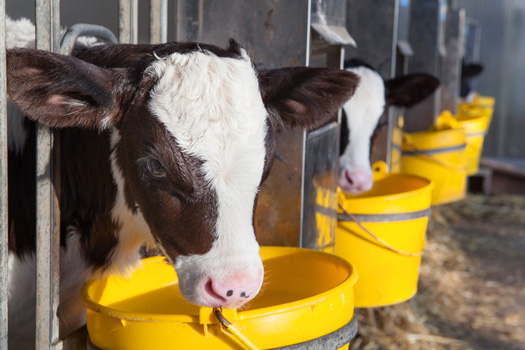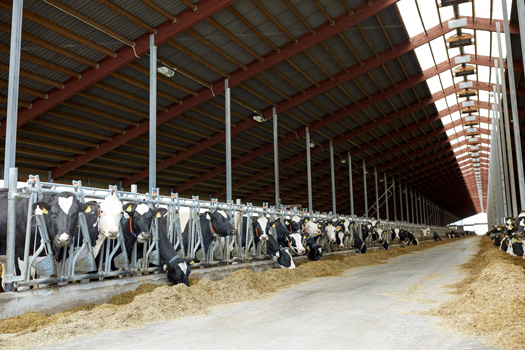Dairy Nutrition
We take pride in feeding dairy cattle at ARK Nutrition and we strive to help dairy farmers control their feed costs while maximizing the health of their dairy cattle and achieving their production goals.
Nutrition Assessment
At ARK Nutrition, our Nutrition Assessment for your dairy farm would be like you having your physical check up at your doctor’s office, however at our nutrition practice we are establishing a nutrition profile for your dairy cattle. At the appointment, our Nutritionist will meet with the dairy farmer and go over the milk production reports, herd health records as well as the current feed program prior to visiting the dairy cattle.
Once those records have been reviewed, we will benchmark the feed inventory, which essentially means we take note of the feed on farm, so for example, what type of feed is available to the dairy cattle, where and how is it stored, how much is left, how is it processed, how is it delivered to the cattle, and then our Nutritionist will take samples for testing if testing has not already been conducted. As for the forages on farm, our nutrition practice routinely tests for dry matters every nutrition herd check. We request routine feed testing to be done at our client’s discretion. Once all the documentation has been reviewed and discussed with the farmer, our Nutritionist will conduct a nutrition evaluation of the dairy cattle. Below is a detailed list of measurements that you will find on your report and the process of analysis during the assessment.


Nutrition Plan
Our Nutritionist will use a formulation program and enter in the information from the nutrition assessment, in addition to the chemical analysis from the feed and any additional information such as information from Fermentrics analysis. Each ration is specifically balanced to meet your dairy cattle’s nutritional requirements. A feed sheet outlining the amount of each ingredient to feed is stated either in kilograms or pounds depending on the farmers preference for feeding. You will find on the feed sheet, a detailed nutrient profile documenting the chemistry of the ration, which means how much protein, fat, fiber, starch, sugar, minerals and vitamins the ration will provide your dairy cattle on a daily basis, taking the guess work out of feeding your dairy cattle and ensuring your dairy cattle are getting a well balance ration. Whether your dairy cattle are starting out as calves or are milking cows knowing what they are eating is a vital part of keeping them healthy and performing at their best.